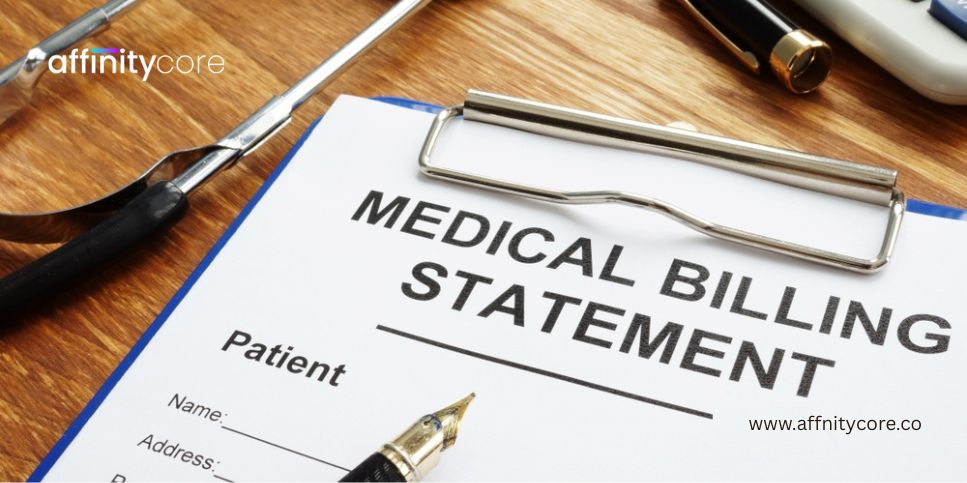
Every dollar lost to billing inefficiencies is a dollar taken from patient care, innovation, or growth. That’s why more healthcare providers are outsourcing, but not without asking the right question first:
What’s the real cost of working with a medical billing company, and is it worth it?
There’s no one-size-fits-all answer. While most companies charge between 4% and 9% of collections, those numbers don’t tell the whole story. Rates vary based on your specialty, claim volume, complexity, and how much of the revenue cycle you’re handing over.
Some vendors bundle everything from coding to compliance. Others just submit claims and move on.
This guide breaks down the actual pricing models, explains what influences those rates, and shares the latest trends, including where average medical billing percentages stand in 2025.
Whether you’re reviewing your current setup or exploring outsourcing to a healthcare BPO company for the first time, this is the clarity you need before making a financial decision that affects your entire operation.
Understanding Medical Billing Pricing Models
Medical coding and billing companies typically use one of three pricing structures, each with its pros and trade-offs:
Percentage of Collections
This is the most common model, where billing providers take a percentage of the revenue they collect on your behalf. The average medical billing percentage typically ranges from 4% to 9%, depending on factors like specialty, practice size, and service complexity.
- Small practices or low-volume specialties often see rates between 7% and 9%.
- High-volume or multi-provider clinics may negotiate rates closer to 4% to 6%.
This model aligns performance with outcomes: the more the billing company collects for you, the more they earn, which encourages thorough, timely follow-up.
Flat Fee Per Claim
Some companies charge a fixed fee for each claim submitted, often between $3 and $10. While this gives you predictable billing costs, it may not reflect the true value if claims require extensive follow-up or appeal work. It can work well for providers with simple coding and straightforward reimbursements.
Monthly Flat Fee or Tiered Pricing
In this structure, you pay a consistent monthly rate, anywhere from $1,000 to $6,000+, for a bundle of services. This may include eligibility checks, coding, billing, denial management, reporting, and more. It’s a predictable option for providers with consistent claim volume or those seeking full-service revenue cycle management.
Key Factors That Influence Medical Billing Company Rates
While pricing models offer a general framework, final rates often depend on:
- Specialty Complexity: High-touch specialties like cardiology, orthopedics, or behavioral health involve more coding and compliance work, which can raise the rate. You need to consult first for medical coding outsourcing services.
- Volume of Claims: Higher claim volume usually means lower rates per claim or percentage due to economies of scale.
- Payer Mix: Medicare and Medicaid claims may take longer to process and require more follow-up than commercial payers, impacting overall cost.
- Scope of Work: Are you outsourcing just the claim submissions or the full revenue cycle? More comprehensive services cost more but reduce internal workload.
- Technology and Reporting: Some vendors charge more for integrated analytics dashboards, EHR connectivity, or custom reporting.
How Much Do Medical Billing Companies Charge in 2025

Medical billing rates are shifting in response to rising labor costs, tighter margins, and evolving regulations. Based on current market research:
- The average medical billing collection rates in 2025 range between 5.5% and 7.2%, slightly up from previous years.
- Companies offering AI-powered claim scrubbing and predictive denial management may charge at the higher end, but deliver better first-pass claim success.
- Value-based care is influencing billing services, companies are increasingly expected to provide insights, not just transactions.
What to Watch for in Contracts
Before you sign on with any vendor, be sure to ask about:
- Setup or onboarding fees
- EHR integration costs
- Annual minimums or contract terms
- Termination penalties
- What’s included (and what’s not) in the base rate
Some companies quote low rates upfront but tack on extra charges for reporting, appeals, or specialty support. Transparency is non-negotiable.
How AffinityCore Adds Value Beyond the Rate
At AffinityCore, we work as an extension of your team, not just a claims processor. Our experts are trained across healthcare verticals, from MedTech startups to enterprise-level Life Sciences organizations. We tailor our approach to your goals and tech stack, with pricing models that scale with your needs.
More importantly, we link performance with outcomes. You don’t just get a service, you get a partner who’s invested in your financial health.
Final Thoughts
Understanding how much medical billing companies charge is more than comparing percentages. It’s about choosing the right fit; financially, operationally, and strategically. Whether you’re optimizing existing processes or considering outsourcing for the first time, the right partner can improve collections, reduce denials, and free up your internal team to focus on what matters most. Moreover, you must also know how does medical billing process works.
Ready to rethink your billing strategy?
Let’s talk. Reach out to AffinityCore to explore flexible, cost-effective medical billing solutions designed for your growth.
FAQs Related to Medical Billing Services Rate
What are the Medical Billing Company Rates Per Hour?
Medical billing company rates per hour typically range from $25 to $65, depending on the complexity of services, specialty, and location. Outsourcing hourly billing can help streamline RCM and reduce in-house costs.
What are the Medical Billing Rates by Specialty?
Medical billing rates vary by specialty: primary care averages 4–6% of collections, while surgical and pain management billing can range from 6–10% due to coding complexity and higher denial risks.
What are Medical Billing Rates Per Claim?
Per-claim rates usually range from $3 to $10, depending on claim volume, specialty, and service scope. High-volume practices often receive discounted per-claim pricing from billing companies.
How much are the Average Medical Billing Collection Rates?
The average medical billing collection rate falls between 95% and 98% for well-managed practices. Higher collection rates indicate efficient billing workflows and payer follow-ups.
What Percentage Do Most Medical Billing Companies Charge?
Most billing companies charge 4% to 9% of net collections. Factors like specialty, claim volume, and added services such as denial management or coding impact the final percentage.
What Is a Good Collection Rate for Medical Billing?
A good collection rate in medical billing is considered above 96%. This shows strong claims processing, proper coding, and effective follow-up strategies with payers and patients.

